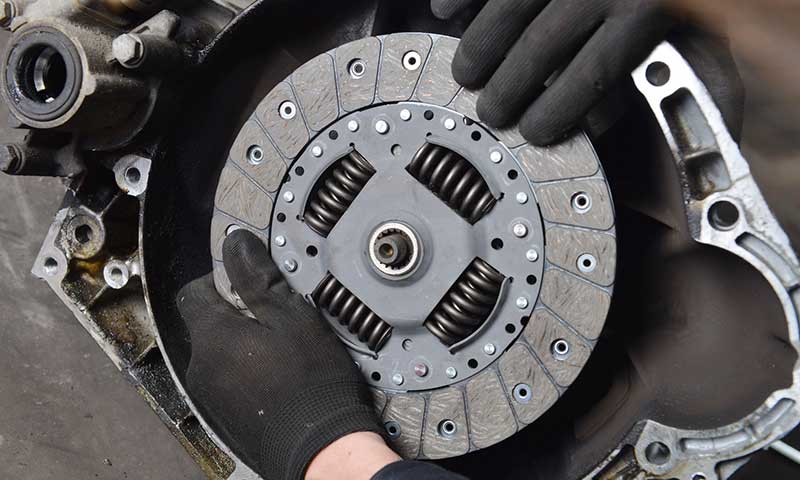Poor gas mileage, or fuel economy, could be coming from a number of different places, some of which don’t get talked about enough. The number one place to start your search should obviously be your tire pressure, but air filters, oxygen sensors, or a shoddy fuel injector could also be to blame. The only way to find out for sure is taking your vehicle in for auto service from the ASE-certified technicans at All Around Auto Repair.
Check Sensors and Filters
Your vehicle’s oxygen sensors are constantly recalibrating the balance of fuel and air to optimize fuel delivery and timing. The oxygen sensor, as the name implies, measures the oxygen level of the exhaust gases and compares those numbers to the ambient, surrounding air. The numbers are then sent to and crunched by your engine’s computer.
Long story short, a fully functioning oxygen sensor gets the whole fuel metering and fuel delivery thing right whereas an oxygen sensor in need of replacement fumbles the football. Oxygen sensors should be replaced around every 50,000 to 100,000 depending on the age of your vehicle and whether your oxygen sensor is heated.
But what about filters that can affect your fuel economy?
Your air filters can also make or break your fuel economy insofar as clean air filters are said to boost gas mileage by up to 10 percent. The auto experts say that a quarter of vehicle desperately need a new air filter.
Inspect Fuel Injectors
A fuel injector is a pretty quirky part of your vehicle. Fuel injectors basically squirt a mist of fuel into your engine with the help of an electronically operated gate so the right amount of fuel gets into the engine at the right time.
Your vehicle’s engine control unit tells your fuel injector when to send a bit of fuel into the engine cylinder. As a rule of thumb, the more that this spray of fuel from the fuel injector to engine cylinder is concentrated, the better your overall fuel economy.
Fuel injectors should be replaced approximately every 25,000 miles so that this spray is as concentrated as possible and so that you don’t experience clogs. A clog in your fuel injector can really tank your vehicle’s fuel economy and cause you to needlessly pay more at the pump with each fill up.
Come in to All Around Auto Repair for auto service to have your fuel injectors inspected and possibly replaced before poor performance jeopardizes your vehicle’s gas mileage and potentially puts a dent in your wallet.
Change Spark Plugs
Your spark plugs should probably be changed out as often as your fuel injectors – every 25,000 miles is a good rule of thumb.
The National Institute for National Service Excellence (ASE) has found that waving off auto service and failing to have your spark plugs replaced on the schedule set by your vehicle’s manufacturer could result in a decrease of gas mileage by upwards of 30 percent!
Oftentimes, when your tires are underinflated, you’ll notice a gradual dip in gas mileage. When your spark plugs start misfiring, though, you’ll often immediately notice your gas mileage plummeting.
Your spark plugs have a starring role to play in getting you from A to B in the sense that spark plugs are responsible for providing the initial combustion – and, well, spark – that sets everything in motion.
Spark plugs get the pistons firing and result in the ideal burn of compressed air-fuel mixture…that is, when everything is firing on all cylinders.
Consider scheduling an appointment online to make sure that happens, calling 707 837-0646, or simply stopping by All Around Auto Repair for auto service today.
Frequently Asked Questions on Improving Fuel Economy
1. What causes poor gas mileage in my vehicle?
Poor gas mileage can stem from several factors, including low tire pressure, dirty air filters, faulty oxygen sensors, or clogged fuel injectors.
2. How does tire pressure affect fuel economy?
Low tire pressure increases rolling resistance, causing your engine to work harder and use more fuel. Regularly checking and maintaining proper tire pressure can improve gas mileage.
3. Why are oxygen sensors important for fuel economy?
Oxygen sensors measure the oxygen level in exhaust gases to optimize fuel delivery and timing. A malfunctioning oxygen sensor can lead to inefficient fuel combustion, negatively impacting gas mileage.
4. How often should I replace my oxygen sensors?
Oxygen sensors typically need replacement every 50,000 to 100,000 miles, depending on your vehicle’s age and whether the sensor is heated.
5. Can air filters really improve gas mileage?
Yes, clean air filters can enhance gas mileage by up to 10%. A clogged air filter restricts airflow to the engine, leading to poor fuel combustion and decreased efficiency.
6. What is the role of fuel injectors in fuel economy?
Fuel injectors deliver precise amounts of fuel to the engine. When they are clogged or not functioning properly, it can lead to poor fuel delivery, resulting in decreased fuel economy.
7. How often should I inspect or replace fuel injectors?
Fuel injectors should generally be inspected and replaced every 25,000 miles to maintain optimal performance and fuel economy.
8. What happens if I neglect to change my spark plugs?
Failing to change spark plugs can decrease gas mileage by up to 30%. Worn or malfunctioning spark plugs can cause misfiring, leading to inefficient fuel combustion.
9. How often should spark plugs be replaced?
Spark plugs should be changed approximately every 25,000 miles to ensure optimal engine performance and fuel efficiency.
10. How can I get my vehicle checked for fuel economy issues?
Visit All Around Auto Repair for a comprehensive inspection. Our ASE-certified technicians can diagnose issues affecting your fuel economy and provide necessary repairs to get you back on track.




